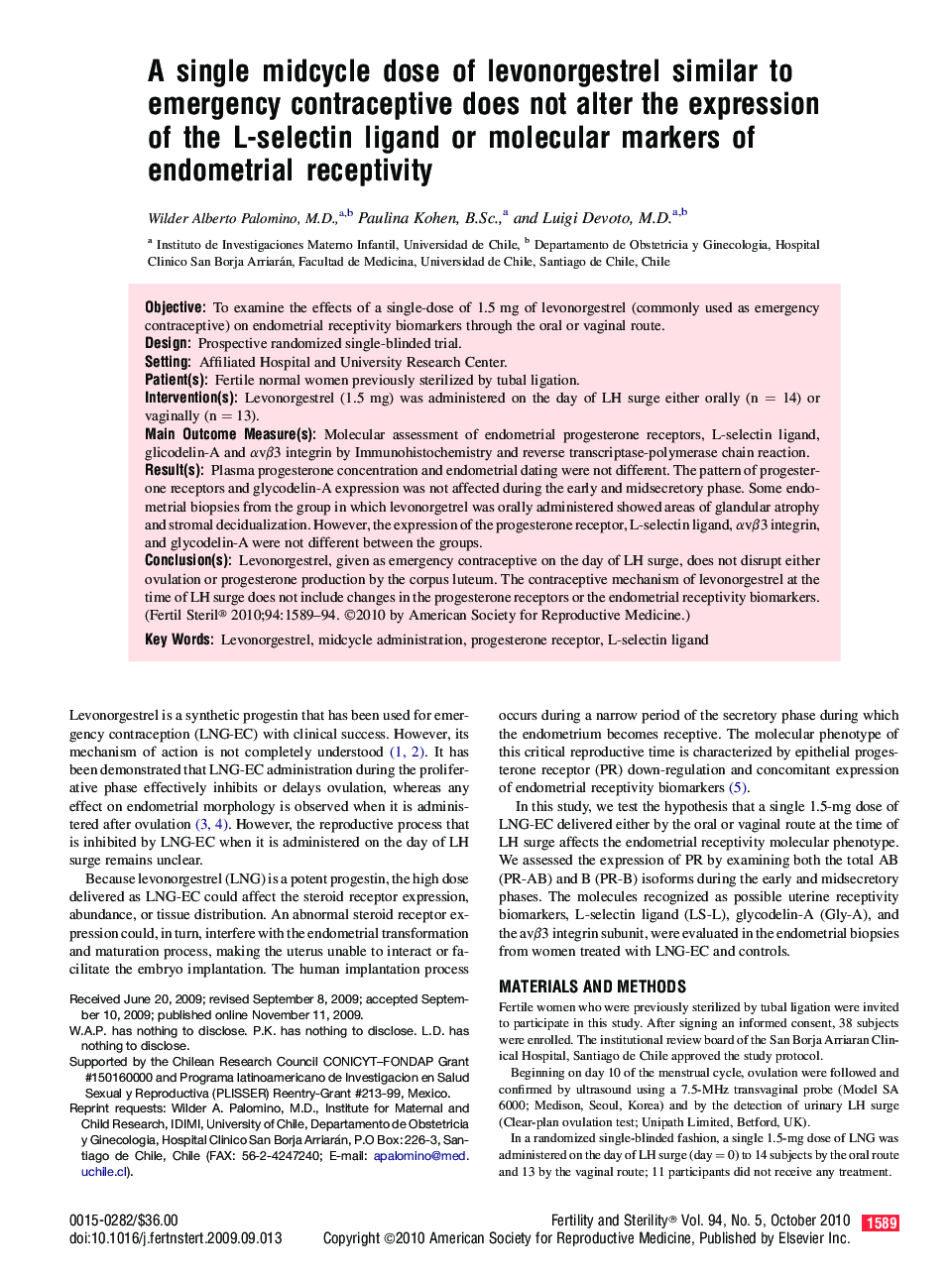| Article ID | Journal | Published Year | Pages | File Type |
|---|---|---|---|---|
| 3940463 | Fertility and Sterility | 2010 | 6 Pages |
ObjectiveTo examine the effects of a single-dose of 1.5 mg of levonorgestrel (commonly used as emergency contraceptive) on endometrial receptivity biomarkers through the oral or vaginal route.DesignProspective randomized single-blinded trial.SettingAffiliated Hospital and University Research Center.Patient(s)Fertile normal women previously sterilized by tubal ligation.Intervention(s)Levonorgestrel (1.5 mg) was administered on the day of LH surge either orally (n = 14) or vaginally (n = 13).Main Outcome Measure(s)Molecular assessment of endometrial progesterone receptors, L-selectin ligand, glicodelin-A and αvβ3 integrin by Immunohistochemistry and reverse transcriptase-polymerase chain reaction.Result(s)Plasma progesterone concentration and endometrial dating were not different. The pattern of progesterone receptors and glycodelin-A expression was not affected during the early and midsecretory phase. Some endometrial biopsies from the group in which levonorgetrel was orally administered showed areas of glandular atrophy and stromal decidualization. However, the expression of the progesterone receptor, L-selectin ligand, αvβ3 integrin, and glycodelin-A were not different between the groups.Conclusion(s)Levonorgestrel, given as emergency contraceptive on the day of LH surge, does not disrupt either ovulation or progesterone production by the corpus luteum. The contraceptive mechanism of levonorgestrel at the time of LH surge does not include changes in the progesterone receptors or the endometrial receptivity biomarkers.
